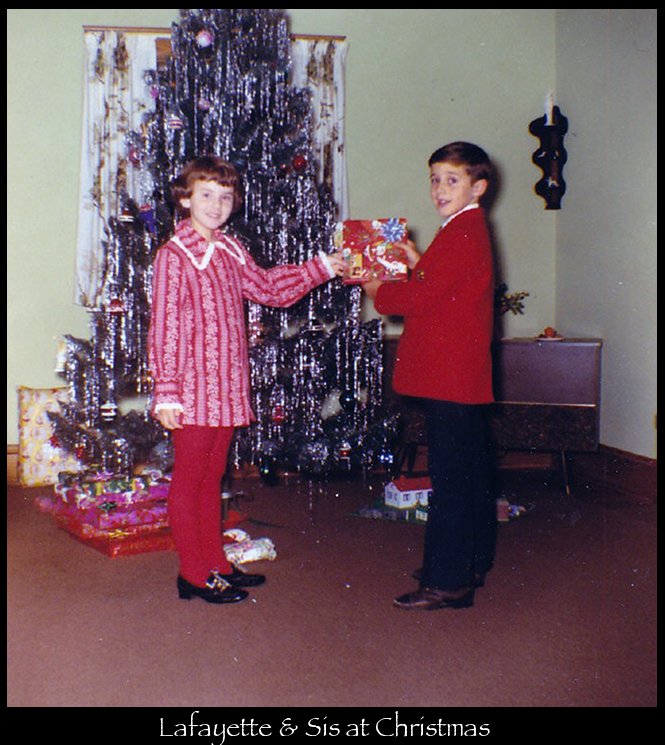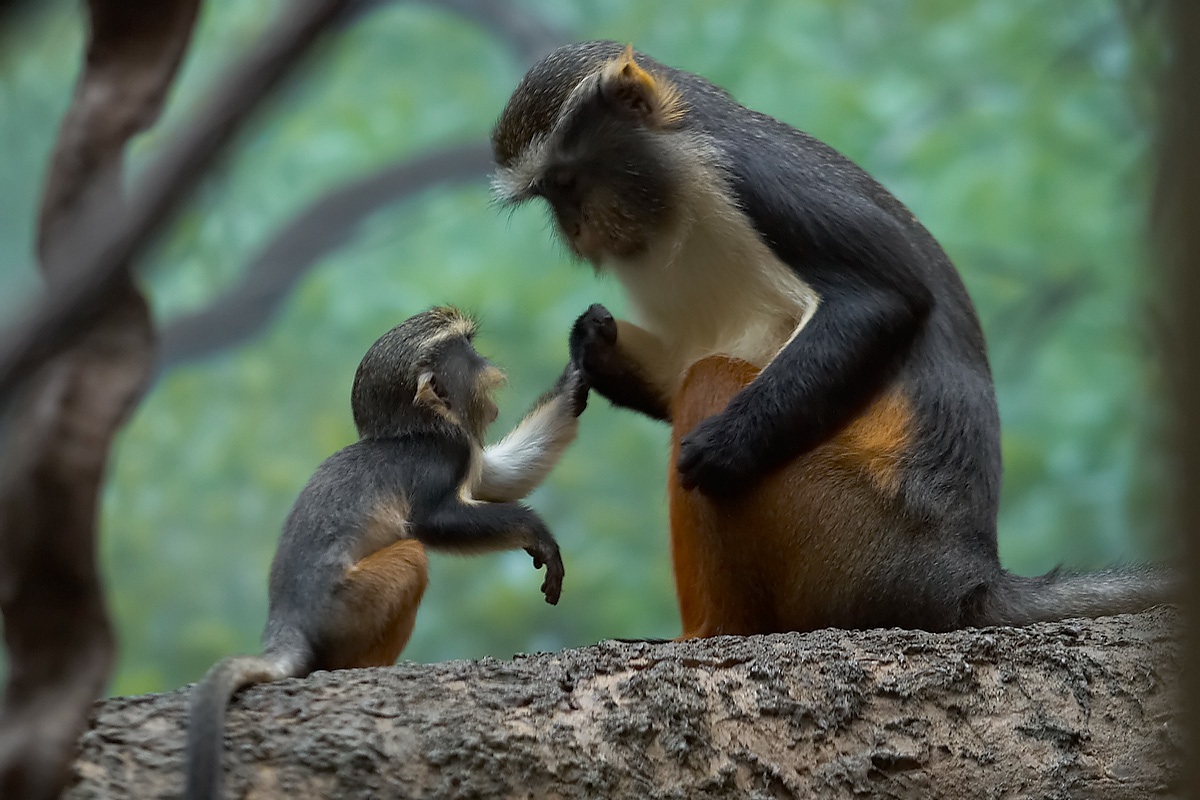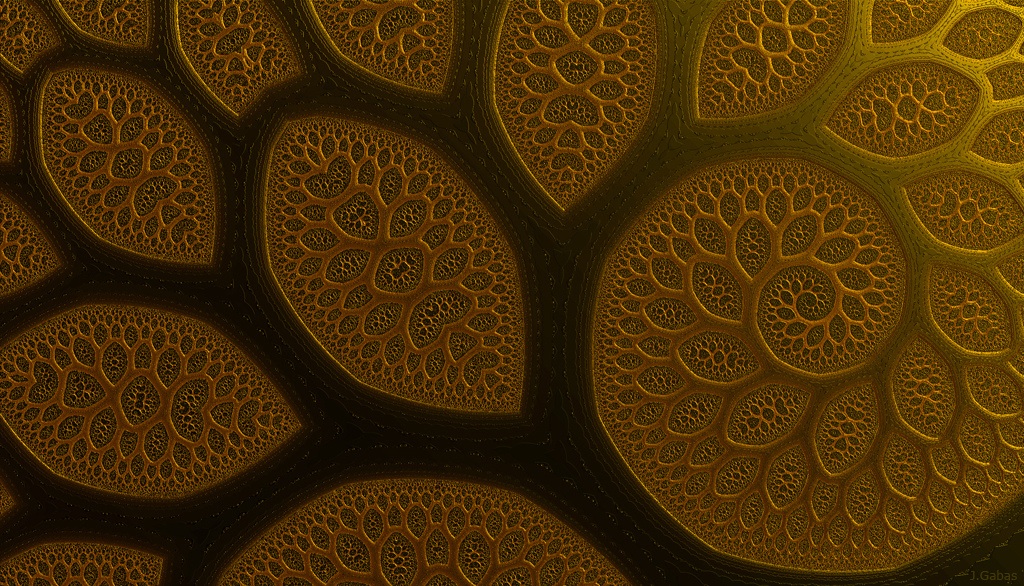“The way to happiness: Keep your heart free from hate,
your mind from worry. Live simply, expect little, give much.
Scatter sunshine, forget yourself, and think of others.”
~ Norman Vincent Peale
I’m torn between two thoughts this week. Well, okay, I have a gazillion thoughts popping around up there among the noodles, but I mean two blog post thoughts. One is on worry and how it sometimes gets in the way (of writing, of everything). The other is on being different and prejudice.
The former is one of the primary obstacles for writers and artists and it also often mucks up happiness for people in general. The latter is one of my biggest pet-peeves. Only the term pet-peeve seems like much too small a concept when it comes to being different.
Prejudice of any kind is one of the very few things in life I truly abhor!
It rattles me to the very core. That’s why almost all of my writing focuses on misfits, on people who are different races, mental and physical capacities, shapes and sizes. The recent circumstances surrounding a certain basketball team owner’s comments sparked a few new thoughts about that.
So, this week I’ll dedicate Write Side Up to “Worry -> Anxiety -> Fear -> Panic,” to quote a friend. Next week’s post I’ll dedicate to prejudice and to being different.
For all its potential evils, the Internet, and Facebook in this instance, also allows us to interact with people all over the planet. To share ideas, to glean insights, to raise questions. Yesterday morning on Facebook, a talented writer friend posted the following (and rather than just lift a few of the phrases, I thought it warranted a full-on theft, so the following quote appears in its entirety):
Worry -> Anxiety -> Fear -> Panic.
“Apparently Worry is a thought process in response to ‘an ill-defined threat often anticipatory in nature and created by the imagination.’
‘Worry can be useful to helping to find solutions to problems; however, worrying often centers on problems that cannot currently be solved. Thinking soon becomes very negative and doom laden, and this is misusing the imagination.’ (By the way, feelings of doom and hopelessness can spiral a person into a depressed state. Unnecessarily.)
Fear is in response to a well-defined threat or present danger. It engages our Fight or Flight response. Survival is the focus, whether physical or mental or emotional or spiritual. If this state goes on for a long while, it can be very tiring. Fear motivates good change. A move away from a real threat to our well-being. But, while Fear can help save us as we respond to a concrete threat, Worry is a misuse of our Imagination. I sometimes wonder if we give Worry power over our Imagination, if that constant state of thinking can help materialize a true Threat…like a self-fulfilling prophecy. (And it makes you feel really really yucky and unbalanced.) It pushes the Good Moments aside for imagined bad moments.
So unless you’ve got a well-defined Threat breathing down your neck today, use your imagination for Good. That’s the Super Hero I want to be: Super Imagination Girl! I kick Worry Monkeys to the curb (and anything or anyone attached to them) with the flick of my pen! Just thinkin’.”
First of all, any allusion to Super Heroes or Ninjas or Jedi has my attention.
Second of all, self-doubt (i.e. worry that they might not have something worthwhile to say, or that they might not be able to say it in a worthwhile way) is a huge obstacle for many writers and artists working in other media. The worthiness component indicates self-judgement, but the often crippling result is that the worry part often gets in the way of the trying part. And that’s a shame.
I love the question, Karen raises.
There’s irony in that the thing being worried about (for example, am I capable of writing a worthy novel) may become a real, perceived threat to the act of writing in the present and cause me to be unable to write a worthy novel (the self-fulfilling prophecy). But there’s also irony in that THE WORRY itself, the anxiety caused by being overcome by worry, being overwhelmed by it, that is what becomes the actual threat in the present.
Worry keeps us focused on what might be, it propels us, often without our cognizance, into the future. And that’s where we spend the present. When that worry turns into fear, the fight or flight response kicks in, but usually there is little we can do to remove the threat, since it is a product of the imagination, aside from finding ways to get out of our own way (out of our conscious thinking).
Writers sometimes worry about the outcome and, as a result, have a difficult time getting started. It is almost impossible to settle into a creative act and to fully immerse yourself if you are worried. Focus is directed to the imagined possible outcome, emotional energy is redirected to the fight or flight response rather than being used for diving down deep where memory and the imagination meet. That’s where the creating happens – in that very out of the way place and it requires a slowing down – it takes solitude of a sort, it takes stillness – to get there.
But when worry becomes anxiety becomes fear, the imagination is so preoccupied there’s not much room for anything else.
Look, we are creatures of emotion and imagination. We have the capacity to feel and to think and to imagine. Our brains are always on. One of those things (a thought, an emotion, etc) can spark the others without our consciously setting out to do so.
That’s part of being human.
But it’s also part of what gets in the way of our realizing our dreams, or even chasing them sometimes. And it sometimes gets in the way of our being happy (regardless of whether we chase our dreams or not).
The key is finding ways to become cognizant of the differences Karen pointed out between fear and worry. Fear being a real, in that moment, threat. Worry being an imagined future possibility (and that doesn’t mean you have to think about the future, you can worry that a thing has already happened that you hope hasn’t happened, but since you don’t know in the present moment, it’s still a possible future consequence that is being given time and space in the present).
So, what can we do, if we in fact identify the culprit, WORRY invading our lives?
The answer will be varied, as we’re all different, the reasons behind our worry are also different.
Here are a few things that might help you get out of the chattering-in-the-head mode so you can be present:
Breathing Exercises – We humans live in our heads. All of the time. Hence the universal appeal of external methods to help get us out of our heads for a bit.
But one thing we often forget is that we also live in our bodies. All the time. The mind, the body, the emotions . . . they’re all connected. And sometimes, rather than dulling the mind, which often leads to worse feelings afterwards and a lack of productivity in the moment, we might get out of our heads through our bodies. By breathing. By moving. By training our brains to focus in on specific things.
Yoga – most people think yoga requires you to be a contortionist, that you have to be super-bendy for it to work, but just sitting still, just slowing down and being aware of the moment, of your body, of your breath, that is yoga. You can do it in a chair, on the floor. You don’t have to go to a studio or be on the mat.
Two poses I like for just slowing down and calming the mind are Savasana (Corpse Pose) and Viparita Karani (Fountain of Youth or Legs-Up-The-Wall Pose).
Get Outside (to Walk and to Observe) – walking by itself is great, but you can still spend the whole time going over and over and over what might come to pass, which is why honing in on the moment is important).
Focus on the air. What’s it doing? How does it feel?
Is the sun out? How does that feel?
What sort of shadows does it create?
What can you smell? Or hear?
What do you truly see?
Allow your senses to be fully engaged.
Most of us tool around on our walks in these beautiful settings (myself included) totally oblivious to the setting itself. We feel good, often much better just by being there. Often without even paying much attention once we’re there. So why do we feel better? You can get an idea of the answer if you allow yourself to engage your senses. If you see something and you slow down or stop and really take it in, you suddenly become aware of the moment and of the place. You are truly present in time and space.
And here are a few things that might help get out of the fight or flight response that happens if worry leads to fear (which Karen also indicated can lead to panic):
Find a Pose – I love Yoga Journal. You can find an assortment of poses with photos on how to do the pose and they also break down the therapeutic and the physiological benefits (i.e. how the poses can benefit the body, as well as the mind and the emotions). Look at all these poses that can help with ANXIETY. That’s right, you don’t have to do an entire sequence to reap the benefits.
Just Stop – Jon Kabat-Zinn defines MINDFULNESS as “moment to moment, non-judgmental awareness.” He claims, the ONLY MOMENT we are EVER ALIVE IN is NOW.” He also says we need to pay attention in the moment.
Meditation– no, that is NOT medication. Nice try! Here’s a simple video with a few suggestions on how to meditate. And this article alludes to “Meditation And Your 40,000-Year-Old Brain.”
Free-Write – (if you’re a painter, then just have at it with no purpose aside from adding color to the blank canvas and see what you get). This is not about quality. It’s merely about letting go! You can still pick something you might want to work on, a new poem, a specific scene for the novel, but don’t worry about using it. Allow yourself fifteen minutes or half-an-hour to just spew words on the page or the computer screen. And if you can use a notepad and a pen or pencil, let your body be part of the process.
This can be quite freeing (no pun intended). And here’s an article on a few of the benefits of free-writing in a journal.
Play – give yourself time to be playful (which free-writing is also aimed at).
“The opposite of play is not work. It’s depression.” – Brian Sutton-Smith
“The creation of something new is not accomplished by the intellect but by the play instinct.” – Carl Jung
“Creative people are curious, flexible, persistent, and independent with a tremendous spirit of adventure and a love of play.” – Henri Matisse
“Drag your thoughts away from your troubles . . . by the ears,
by the heels, or any other way you can manage it.” – Mark Twain
Let’s be honest. If it were as easy as saying, drag your thoughts away, none of us would worry for very long. But Twain’s comment is still on point. Do what you can to free your thoughts from your troubles. It’s already a huge undertaking to turn inward, to hold your breath and dive to your very depths in order to tap that wellspring, and to create.
But if your thoughts are entwined with your worries, breath-holding becomes involuntary, you flounder in the shallow end, and often never truly submerge. You never fully immerse yourself in your unconscious and let it take over. You never get into any sort of flow.
“How much pain they have cost us,
the evils which have never happened.” – Thomas Jefferson
I bet if we went back over the past year, decade, longer, and sorted out all the worries we’ve had from all the real problems that actually happened, one side of that scale would far surpass the other.
Think of all that time and energy spent worrying being used to do the thing you love.
Don’t get me wrong. I worry. Worrying is, as I said before, part of the human condition. The trick comes, I believe, in recognizing worry for what it is and squelching the anxiety before it takes over.
Here’s one suggestion I came across recently for calming the mind, emotions, body:
“Begin with the Lotus position, sitting crossed legged with hands resting on the knees, palms up. The most important thing is to remember to breathe. To calm the rapid breathing often accompanying panic attacks, focus on your breathing at first, a five count in and a five count out, but let the breathing become natural. Let the breathing set the rhythm of the practice. Eyes should be closed, listening to the rhythm of the breathing. After five or ten minutes here, the body should feel calmer.” (This tip comes from an article on “10 Yoga Poses to Fight Depression and Anxiety” which can be found here).
“Don’t worry. Be happy.” Nice song. Wise words. Difficult task. But you can do it. Hopefully a few of the above tips will help. After all, I’m hoping you get to the page, too. Speaking of which, it’s time for me to work on some new poems.
Keep after it, y’all!
““Understand not everything is meant to be understood . . .” by deeplifequotes, “Worried Eggs II” by Domiriel, and “Don’t Worry Be Happy” by Evil Erin are all used as per Creative Commons License on Flickr.
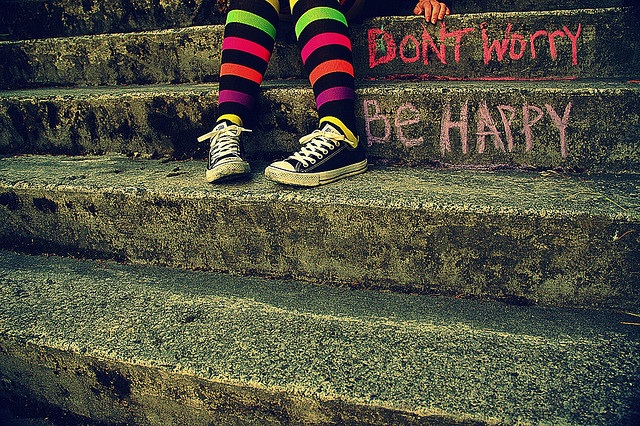

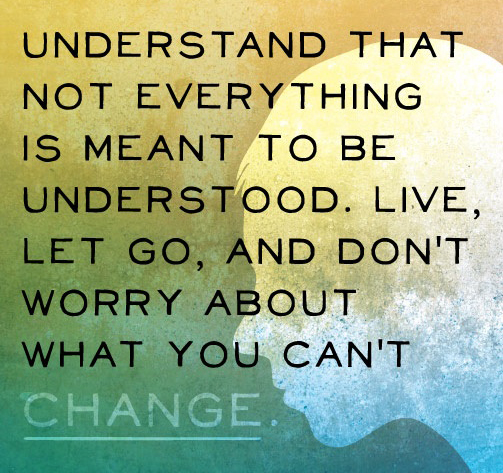

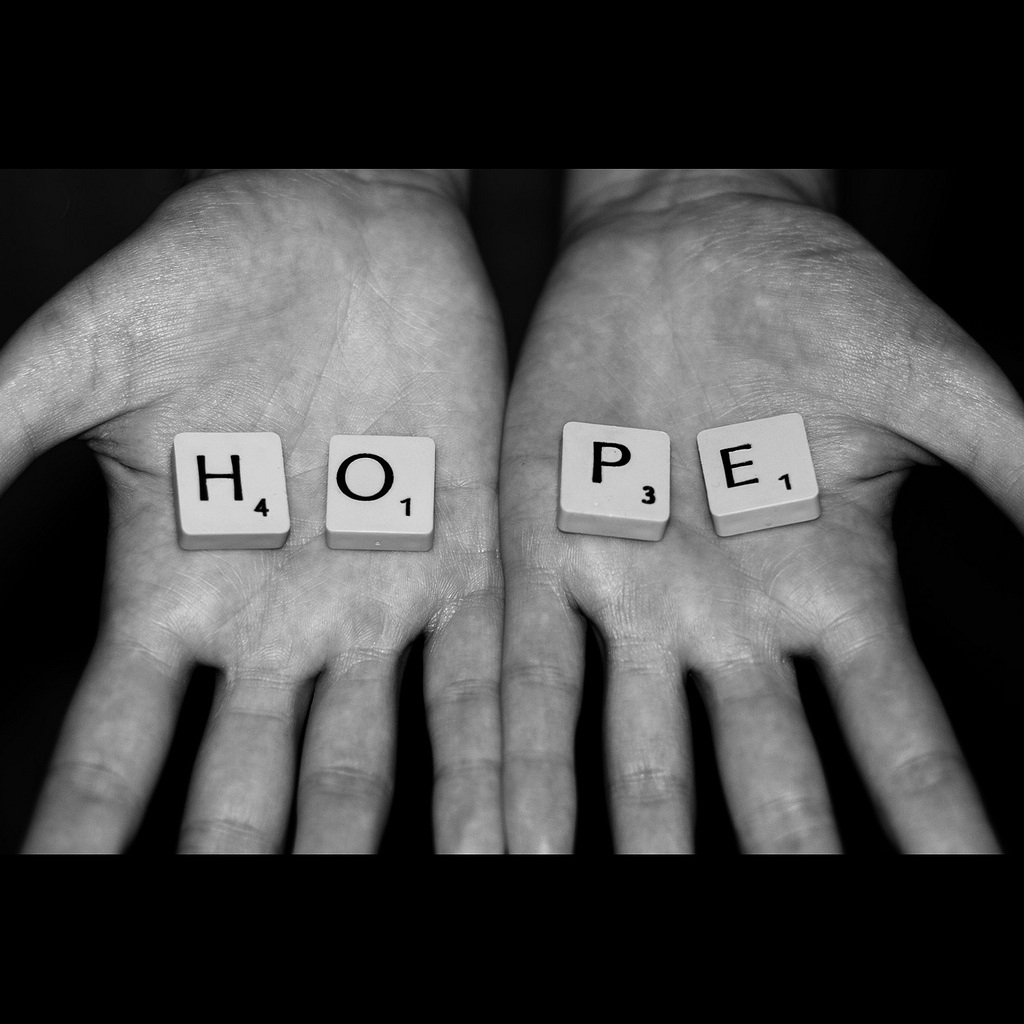
![Mickey McKay & Frank Conifrey - Lenox Hill Settle't [i.e., Settlement] Mickey McKay & Frank Conifrey - Lenox Hill Settle't [i.e., Settlement]](http://lafayettewattles.com/wp-content/uploads/2014/02/boxing-locb.jpg)

